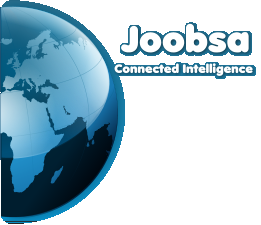
Smart Cities
Smart citizens living in smart cities

Technology driving the modern city
Understanding Smart Cities
With so many technology analysts talking about how to make the most of new technology advances to enhance citizens’ lifestyle, so many new businesses based on exploiting digital data, and so many public administrations willing to build more comfortable and pleasant cities, the Smart City has a promising journey ahead and is very relevant for the development of our society. A Smart City is that city capable of leveraging technology to adapt to changes in social life (ways of living) and in businesses. Especially, it refers to any kind of city-citizen interaction – bringing the immediacy to what we are used at the private level to a city level. Nowadays it is vital for a city to be competitive in order to attract investment, talent, people, etc. A Smart City will have tools to be managed efficiently and to respond to new challenges, so that will make it more competitive. All medium and large municipalities in Spain are currently thinking about how to leverage technology to orient themselves to Smart Cities. It is important to know, however, that Smart Cities are not only those using smart sensors, but are also those capable of managing large volumes of information to better serve population and businesses. A Smart City changes the way the city interacts with the citizen – services can be customized. A Smart City is proactive, not reactive. For example, if we get to know what public transportation routes a person takes to go to work, or his pleasures, like going to museums or to the gym once a week, the city can offer discounts on services or service packs, etc … “This point is controversial, but we think this can be solved by letting each one decide whether to transfer personal data or not (or only provide it when the citizen wants)”.Applications
• Smart parking • Smart lightning • Smart roads • Traffic congestion • Structural health • Urban noise monitoring • Smartphone detection • Electromagnetic field levels monitoring Utopia The utopia that we aspire will see IoT projects joined together across cities, from city to city, and possibly across national boundaries, optimizing efficiency and cost savings whilst maximising benefits to citizens and businesses. Right now only a very few courageous municipalities such as Barcelona dare to aim so high, but as others take even baby steps through discrete projects the process of transformation can only continue to gain momentum. The smart city of Barcelona





Smart Cities
Smart citizens living in smart cities

Technology driving the modern city
Understanding Smart Cities
With so many technology analysts talking about how to make the most of new technology advances to enhance citizens’ lifestyle, so many new businesses based on exploiting digital data, and so many public administrations willing to build more comfortable and pleasant cities, the Smart City has a promising journey ahead and is very relevant for the development of our society. A Smart City is that city capable of leveraging technology to adapt to changes in social life (ways of living) and in businesses. Especially, it refers to any kind of city-citizen interaction – bringing the immediacy to what we are used at the private level to a city level. Nowadays it is vital for a city to be competitive in order to attract investment, talent, people, etc. A Smart City will have tools to be managed efficiently and to respond to new challenges, so that will make it more competitive. All medium and large municipalities in Spain are currently thinking about how to leverage technology to orient themselves to Smart Cities. It is important to know, however, that Smart Cities are not only those using smart sensors, but are also those capable of managing large volumes of information to better serve population and businesses. A Smart City changes the way the city interacts with the citizen – services can be customized. A Smart City is proactive, not reactive. For example, if we get to know what public transportation routes a person takes to go to work, or his pleasures, like going to museums or to the gym once a week, the city can offer discounts on services or service packs, etc … “This point is controversial, but we think this can be solved by letting each one decide whether to transfer personal data or not (or only provide it when the citizen wants)”.Applications
• Smart parking • Smart lightning • Smart roads • Traffic congestion • Structural health • Urban noise monitoring • Smartphone detection • Electromagnetic field levels monitoring Utopia The utopia that we aspire will see IoT projects joined together across cities, from city to city, and possibly across national boundaries, optimizing efficiency and cost savings whilst maximising benefits to citizens and businesses. Right now only a very few courageous municipalities such as Barcelona dare to aim so high, but as others take even baby steps through discrete projects the process of transformation can only continue to gain momentum. The smart city of Barcelona
© Joobsa 2018
mobile version


















